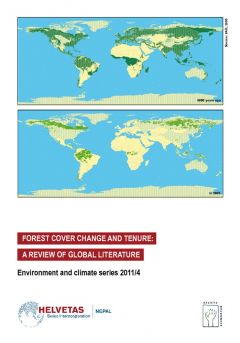Location
RECOFTC
RECOFTC is derived from an abbreviated form of the organization's legal name, Regional Community Forestry Training Center for Asia and the Pacific. Formerly the organization was known as RECOFTC – The Center for People and Forests.
RECOFTC – The Center for People and Forests is an international not-for-profit organization that focuses on capacity building for community forestry in the Asia Pacific region. It advocates for the increased involvement of local communities living in and around forests - some 450 million people in Asia-Pacific - in the equitable and ecologically sustainable management of forest landscapes.
The Regional Community Forestry Training Center for Asia and the Pacific (RECOFTC) opened in Bangkok, Thailand, in March 1987 with support from the United Nations Food and Agriculture Organization, the Government of Switzerland (through the Asian Development Bank), and Thailand's Kasetsart University.
Community forestry is widely acknowledged as a powerful solution for many of the challenges facing local people and the wider society, especially in improving rural livelihoods, enhancing community governance and empowerment, transforming forest-related conflict, protecting and enhancing the environment, and helping to fight climate change. As a capacity-building organisation, RECOFTC improves the ability of people and organisations to conduct community forestry effectively and sustainably.
RECOFTC works toward its mission through four thematic areas:
- expanding community forestry
- people, forests and climate change
- transforming forest conflict
- securing local livelihoods.
Members:
Resources
Displaying 331 - 335 of 485Forests and Climate Change Adaption in Asia
This brief, produced jointly by FAO, UNEP and RECOFTC, outlines the ways in which forests contribute to climate change adaptation in the Asian region. It details current climate changes impacting forest ecosystems in Asia; key components of climate change adaptation and sustainable forest management; the current status of climate change adaptation and forests in Asia; and the way ahead.
Overview:
Forest Conflict in Asia and the Role of Collective Action in its Management
Forest conflict in Asia is on the rise as various stakeholders have different views about and interests in the management of increasingly scarce resources. Unfortunately, in many instances, local communities and indigenous peoples suffer the most when such conflicts play out. Focusing on how rights (or a lack thereof) instigate conflict and how collective action plays a role in conflict management, this paper examines eight cases from six countries: Cambodia, China, Indonesia, Lao PDR, Thailand and Vietnam.
Community Carbon Accounting Research Project
The Community Carbon Accounting (CCA) Action Research Project was launched with the intention of elaborating approaches for engaging communities in forest carbon stock monitoring.
Divers Paths to Justice: Legal pluralism and the rights of indigenous peoples in Southeast Asia
This publication reveals that the majority of Southeast Asian countries already have plural legal systems, and to some extent custom is recognised as a source of rights in the legal framework of a number of them. National and international courts have affirmed indigenous peoples’ customary rights in land. And all these countries have endorsed and ratified key international human rights laws and treaties-- thus, the basis for securing indigenous peoples’ rights through a revalidation of customary law exists.
Forest Cover Change and Tenure: A Review of Global Literature
In the REDD+ era, the issue of forest tenure has shot to the top of international forest policy agendas. Even beyond the issue of 'REDD readiness,' there is much debate on the role of tenure in other outcomes of sustainable forest management, in particular livelihoods and forest conservation. This literature review focuses on the latter concern and aims to provide a brief overview of the international literature on the question of the relationship between forest tenure and forest cover change.






